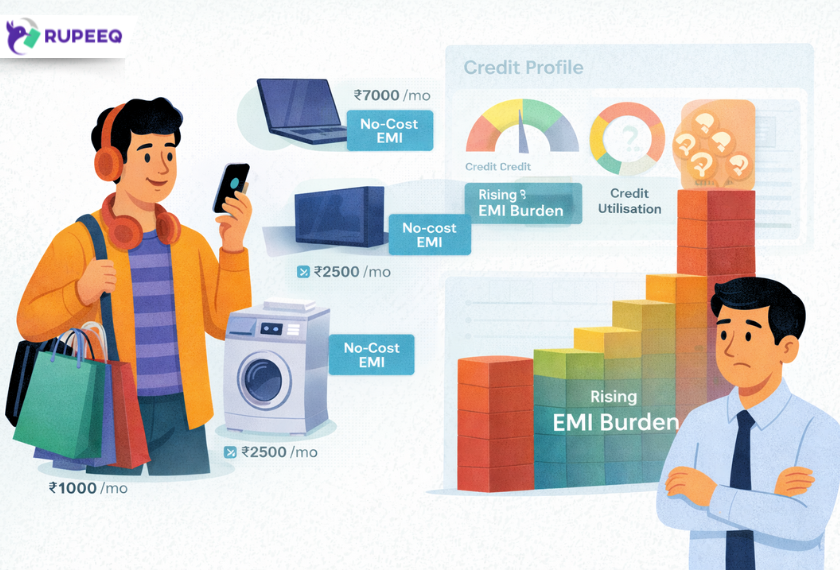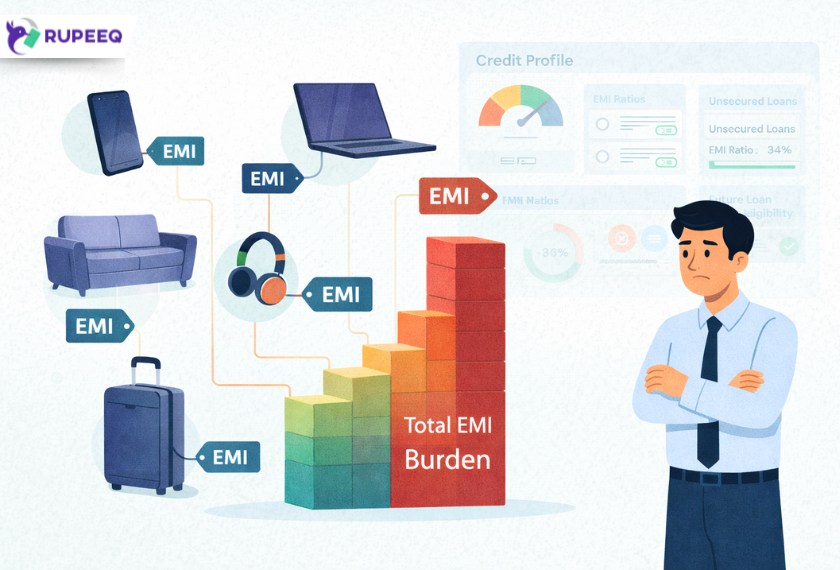When you check your credit report or apply for financial products, lenders and credit bureaus perform inquiries to assess your creditworthiness. These inquiries are classified into two types: soft inquiries and hard inquiries. While hard inquiries can impact your credit score, soft inquiries do not, yet they play a crucial role in your financial journey.
In this blog, we’ll dive deep into what a soft inquiry is, how it works, and why it matters to your credit health.
What is a Soft Inquiry?
A soft inquiry (also known as a soft query) occurs when you or a third party, such as a lender or employer, checks your credit report for informational purposes. Unlike hard inquiries, soft inquiries do not affect your credit score.
Examples of soft inquiries:
- Checking your own credit score through a financial platform.
- Pre-approved loan or credit card offers from banks.
- Background checks conducted by employers.
- Rental applications by landlords.
Key characteristics of a soft inquiry:
- It does not require your explicit permission (in most cases).
- It does not impact your credit score.
- It remains visible only to you on your credit report.
RupeeQ Tip: Regularly check your credit report using soft inquiries to stay informed about your credit health without hurting your score.
Soft Inquiry vs. Hard Inquiry: What’s the Difference?
Understanding the difference between soft and hard inquiries is essential to managing your credit wisely. Here’s a comparison:
| Factor | Soft Inquiry | Hard Inquiry |
| Purpose | Informational or pre-qualification | Loan or credit application |
| Impact on Credit Score | No impact | May lower the score temporarily |
| Visibility | Only visible to you | Visible to lenders and financial institutions |
| Examples | Checking your own credit, pre-approved offers | Applying for a credit card or loan |
Example:
- Soft Inquiry: You check your credit score on RupeeQ before applying for a loan.
- Hard Inquiry: You apply for a home loan, and the lender pulls your credit report to evaluate your eligibility.
RupeeQ Tip: Too many hard inquiries can lower your credit score, so apply for credit only when necessary.
Why Do Soft Inquiries Matter?
Even though soft inquiries don’t impact your credit score, they hold importance for your financial planning and decision-making.
- Helps Monitor Your Credit Health
Soft inquiries allow you to regularly track changes in your credit score, detect discrepancies, and identify fraudulent activities early.
Example:
If you notice an unexpected drop in your score, you can investigate the issue and take corrective action before it affects future loan approvals.
- Pre-Approval Offers Without Risk
Banks and credit bureaus use soft inquiries to offer you pre-approved loans and credit cards without damaging your score. This gives you an idea of your borrowing capacity.
Example:
You receive a pre-approved credit card offer with attractive benefits based on your credit profile.
- Credit Improvement Opportunities
By frequently reviewing your credit report through soft inquiries, you can take corrective actions such as improving payment habits and lowering credit utilization. - Job and Rental Screenings
Employers and landlords often conduct soft inquiries to assess financial responsibility, affecting your job applications and rental opportunities.
When Should You Use a Soft Inquiry?
Using soft inquiries at the right time can help you stay financially prepared. Consider making a soft inquiry in the following situations:
- Before Applying for a Loan: Check your creditworthiness and rectify any errors before submitting a formal application.
- For Regular Credit Monitoring: Keep an eye on your credit report periodically to track progress and spot inaccuracies.
- While Comparing Credit Offers: Evaluate pre-approved credit card or loan offers to choose the best one.
- During Financial Planning: Before making big financial decisions like buying a home or expanding a business.
How to Perform a Soft Inquiry?
You can perform a soft inquiry by requesting your credit report from any of the leading credit bureaus in India, such as:
- CIBIL (Credit Information Bureau India Limited)
- CRIF High Mark
- Equifax
- Experian
Steps to perform a soft inquiry:
- Visit the official website of a credit bureau or a financial marketplace like RupeeQ.
- Enter your personal details such as PAN, date of birth, and registered mobile number.
- Verify your identity through OTP authentication.
- View your credit score and report instantly.
RupeeQ Tip: You can check your credit score with RupeeQ ACE for free and get personalized credit improvement suggestions.
Common Misconceptions About Soft Inquiries
There are several myths surrounding soft inquiries that often lead to confusion. Let’s clear them up:
Myth 1: Soft inquiries affect your credit score.
Truth: They do not impact your credit score in any way.
Myth 2: Checking your own credit report frequently is harmful.
Truth: Regular self-checks help you stay financially aware and are encouraged.
Myth 3: Lenders always require hard inquiries to approve loans.
Truth: Many lenders conduct soft inquiries for pre-approval before running a hard inquiry.
Conclusion on Soft Query & It’s Significance
Soft inquiries are a valuable tool for maintaining good credit health, allowing you to monitor your financial standing without affecting your credit score. Whether you’re planning to apply for personal loan or simply staying informed, regular soft inquiries can help you make better financial decisions.
RupeeQ provides free credit score checks using soft inquiries, helping you track your creditworthiness without any impact. Stay informed and take charge of your credit health with RupeeQ today.







